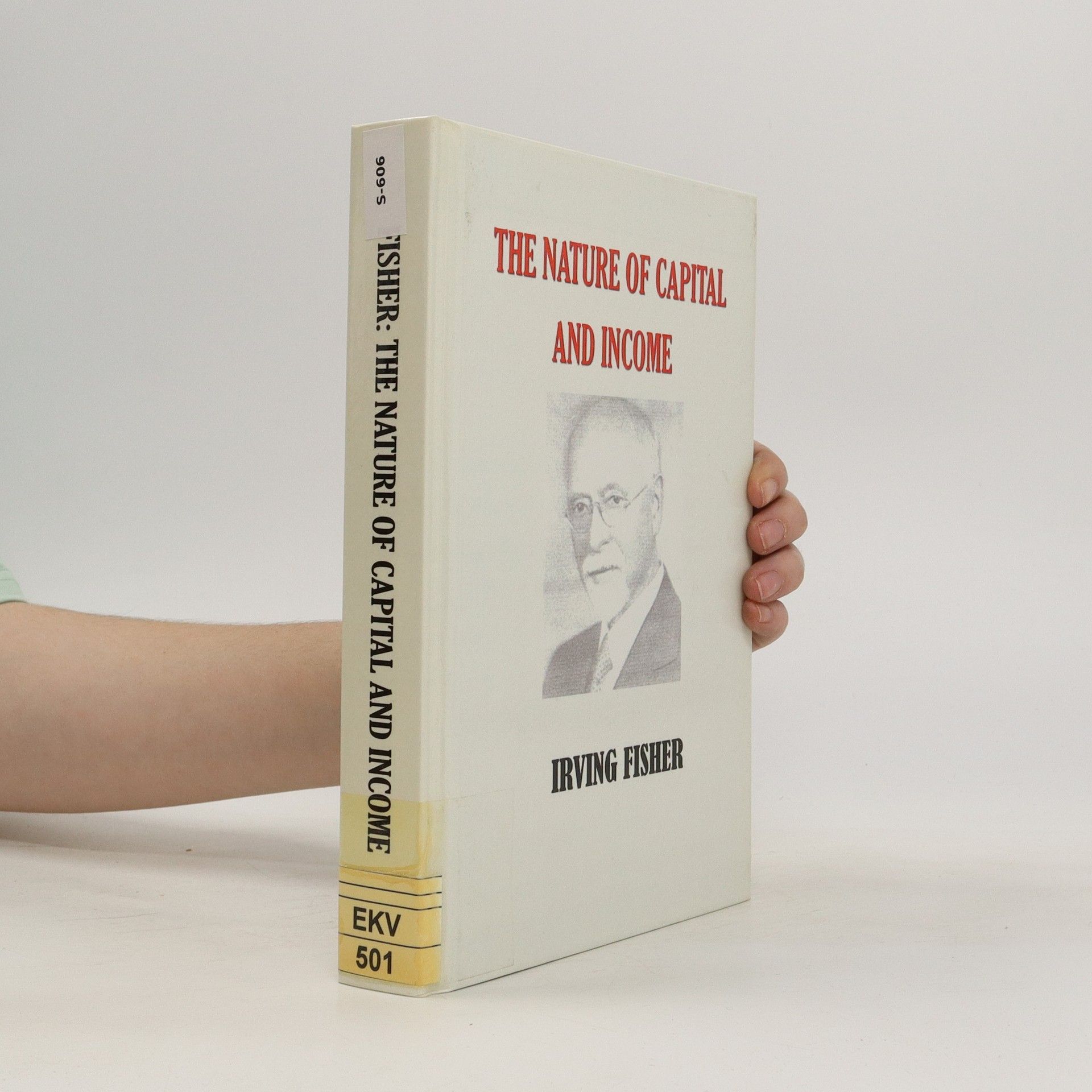Irving Fisher Bücher
Irving Fisher war ein amerikanischer Ökonom, dessen Werk die Grundlage für viele moderne ökonomische Theorien legte. Er leistete bedeutende Beiträge zur Nutzen- und Gleichgewichtstheorie und leistete Pionierarbeit bei der Untersuchung intertemporaler Entscheidungen auf Märkten, was zu seiner Theorie von Kapital und Zinssätzen führte. Seine Forschung zur quantitativen Geldtheorie gilt als Beginn des Monetarismus. Obwohl sein Ruf durch Börsenprognosen beschädigt wurde, bleiben seine späteren Theorien zur Schuldendeflation und seine Arbeiten zu Kapital und Zinsen einflussreich.







Mathematical Investigations in the Theory of Value and Prices, and Appreciation and Interest
- 244 Seiten
- 9 Lesestunden
The volume features two seminal works by Irving Fisher, a pioneer in modern finance. It explores his influential concepts, including the Fisher equation, hypothesis, and separation theorem, which have shaped economic theory. Fisher's insights into interest rates and capital markets provide a foundational understanding of financial principles that continue to resonate in contemporary economics.
The Nature of Capital and Income
- 452 Seiten
- 16 Lesestunden
A long-gone classic written by one of America's greatest economists.
ELEMENTARY PRINCIPLES OF ECONOMICS
- 570 Seiten
- 20 Lesestunden
This book delves into the intricate relationship between wealth, income, and capital, exploring how various factors influence purchasing power and monetary systems. It examines the dynamics of supply and demand, the principles governing interest rates, and the impact of impatience for income on financial decisions. Additionally, the text discusses the causes and effects of price variations, as well as the interplay between income from labor and capital. Ultimately, it provides insights into wealth distribution and its implications for welfare and societal structures.
Cosimo Classics: How to Live
Rules for Healthful Living Based on Modern Science
- 384 Seiten
- 14 Lesestunden
Irving Fisher's interest in public health was the result of a bout with tuberculosis, after which he wrote "How to Rules for Healthful Living Based on Modern Science". In his foreword to the book, former president and then-future Chief Justice William Howard Taft wrote that there were many "considerations that have influenced me to cooperate with the life extension movement, and to commend this volume to the earnest consideration of all who desire authoritative guidance in improving their own physical condition or in making effective the knowledge now available for bringing health and happiness to our people." To do that, the authors present chapters on the air, food, poisons, activities, and general hygiene, followed by sections dealing with being overweight or underweight, alcohol, posture, and tobacco -- and even how to avoid colds. Irving Fisher was a top American economist in the early 20th century who earned the first Ph.D. in economics awarded by Yale University, where he also taught political economy. He was an accomplished mathematician and an engaging and talented writer on even the most technical of subjects whose investigations ranged beyond economics to encompass astronomy, health and hygiene, mechanics, philosophy, poetry, science, and myriad public policy issues. Dr. Eugene Lyman Fisk was the chairman of the Life Extension Institute, under whose auspices this book was published.
Prohibition Still at Its Worst
- 396 Seiten
- 14 Lesestunden
Excerpt from Prohibition Still at Its Worst I am enclosing herewith an outline, in chapter headings, of my book, Prohibition Still at its Worst, which is now in prepara tion. About the Publisher Forgotten Books publishes hundreds of thousands of rare and classic books. Find more at www.forgottenbooks.com This book is a reproduction of an important historical work. Forgotten Books uses state-of-the-art technology to digitally reconstruct the work, preserving the original format whilst repairing imperfections present in the aged copy. In rare cases, an imperfection in the original, such as a blemish or missing page, may be replicated in our edition. We do, however, repair the vast majority of imperfections successfully; any imperfections that remain are intentionally left to preserve the state of such historical works.
A Brief Introduction to the Infinitesimal Calculus
- 102 Seiten
- 4 Lesestunden
Příručka rozumné životosprávy podle moderních vědeckých zásad. Zdraví je základ, na němž spočívá štěstí národa a síla země! Uvědomte si to! Tato kniha Vám poradí, jak si zdraví udržeti, a bude Vám rádcem, který nikdy neselže!
